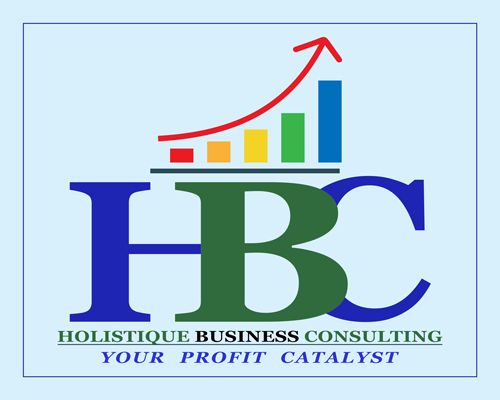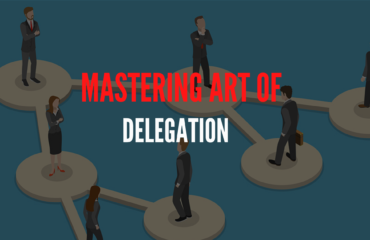
As Business Owners, Are You
- Struggling to generate sales?
- Facing difficulties in building customer profile?
- Worried about abysmal rate of customer retention?
- Encountering lack of collaboration between your marketing and sales department?
- Unable to track your high value customer account?
- Unable to identify contacts within an account?
- Hampered by incomplete and inaccurate accounts?
- Suffering from faulty planning and forecasting?
If you are faced with such formidable challenges
What To Do?
Immediate Solution lies in Introduction of CRM – Customer Relations Management
Meaning of CRM
Customer Relationship Management (CRM) is the most viable and efficient approach to creating and nurturing relationships with customers.
- CRM caters to past, present, and prospective clientele.
- It encourages solid personal bonding with customers.
Here is a happy outcome-the business is elevated to the next level of success!
CRM System
A CRM System is a technology to help businesses in keeping informed of all their customers, leads, and prospects stored and organized in one place.
CRM System Endorses for Organization that Customer is King.
- A CRM system consists of a historical view and analysis of all the acquired or to be acquired customers. This helps in reducing searching and correlating customers and to foresee customer needs effectively and increase business.
- CRM contains each and every bit of details to track a customer journey. It can be used to determine which customer can be profitable and which not.
- In the CRM system, customers are grouped according to different aspects according to the type of business they do or according to a physical location and are allocated to different customer managers often called account managers. This helps in focusing and concentrating on each and every customer separately.
- A CRM system is useful in acquiring new customers.
- Customer Relationship Management is very cost-effective. The technologies used in implementing a CRM system are very cheap and smooth as compared to the traditional way of business.
- All the details in the CRM system are kept centralized. This reduces the processing time and increases productivity. Efficiently dealing with all the customers creates greater customer satisfaction. This generates more business which ultimately enhances turnover, profit, customer loyalty, and growth of the business.
Leverage CRM for Marketing Success
CRM leverages and amplifies the customer base of an organization through efficacious and efficient marketing.
CRM has brought up new dimensions in the field of marketing by significantly improving marketing function.
This is with the execution of marketing strategies like – direct marketing, web marketing, e-mail marketing – more promising than the traditional ways of marketing.
They help in
- Delivering higher-up performance and whopping business.
- Excellent response rates in marketing campaigns, cut cost on promotions due to low asset values.
- Provide higher scrutiny on organizational investments.
Rationale for CRM System
- Extensive Customer Data
- Customer-Oriented Products
- Help To Get Service-Ready
- Optimize Conversion Probability
- Retention Of Customers
- Easy Access Of Data Anywhere
- Growing Business Reputation
- Make Brand Image Brilliant
- Boosting Brand Image on Social Media
- Training Employees
- Helps to Reduce Cost
- Automation of Every Day Assigned Task
- Increased Coordination Among Multiple Teams
Stages In Implementation Process of CRM System
- Collection of data.
- Segmentation and storage of data.
- Data is available for access by authorized people.
- The data helps analysis of customer behaviour.
- The system offers solutions for efficient Digital Marketing.
The system offers suggestions to enhance the customer experience.
CRM Oriented Marketing Encompasses
- Web Marketing
- Marketing
- Analysis of online customers buying behaviour
- Analysis of the past buying history of customers which predicts the future business with those customers
- Customer’s behaviour online helps to fix or change marketing techniques or strategies to mould the system according to the future perspectives
- Forecasting future marketing strategies
- Building business impact models
Salient Features of CRM
A CRM system maintains and manages data obtained from multiple sources and touchpoints, including email, the company website, live chat, telephone, and social media.
A CRM is a database that stores customer-specific data like-
- Buying history
- Specific wants and needs
- Purchasing preferences and financial demographics
CRM thus creates a holistic view of the customer and promotes more engaging and consistent interactions-
- Reporting and dashboards
- Sales management
- Marketing campaign management
- Service management
- Insights generation
CRM also helps in-
- Increasing revenues by increasing sales opportunities
- Segmenting customers with ease
- Cross-departmental alignment
Types of CRM Solutions
CRM solutions can be classified into three broad categories:
1. Operational CRM
Operational CRM streamlines the business process that includes-
- Sales automation
- Marketing automation
- Service automation
2. Analytical CRM
Analytical CRM contains-
- Sales Data
- Finance Data
- Marketing Data
3. Collaborative CRM
Collaborative CRM is an arrangement of assets and systems between discrete organizations for-
- Distinguishing
- Securing
- Creating
- Holding
- Keeping up significant clients
Elements To Consider For Choice Of CRM System
- Sales
- Marketing
- Support and service
- The customer support
- Data management
- Lead scoring
- Task Management
- Email integration
- Mobile accessibility
Varying Impact Of CRM On Business
The application of CRM is useful for both B2B and B2C businesses.
- Large businesses use CRM.
- To collaborate when a global team is assigned to a single customer or deal.
- To instil discipline in the sales force.
- Smaller businesses use CRM systems as a data engine for marketing campaigns.
- The built-in efficiencies and sales journey tracking are often the most valuable aspect for them.
On-Premise CRM vs Cloud based CRM
Considerations Influencing your Selection
A Cloud CRM is simply a Customer Relationship Management system that uses Cloud computing technology to host CRM applications.
Customer data is stored on the CRM vendor’s servers in a data center.
On the other hand, a traditional CRM system hosts customer data on a server in your office.
Major Benefits Of The Cloud CRM App are:
- There is no hardware to install or software maintenance issues to worry about, vis-a-vis CRM in-house.
- There is no significant upfront capital expenditure on IT infrastructure or data center costs.
- The Cloud’s ‘pay as you go’ approach is very appealing to many businesses.
- Cloud computing is often more secure than many private data centers.
- A good Cloud service provider will have robust processes in place to ensure your data is protected, accessible at all times, and regularly backed up.
Limitations Of CRM
CRMs are customer-facing.
By and large, CRM’s don’t help with production, warehousing, shipping, engineering, or finance.
How Useful is CRM?
- Learning
- CRM helps businesses learn about their customers.
- Who they are and why they purchase your products.
- Trends in customers’ purchasing histories.
- This allows businesses to better anticipate their customers’ needs and, as a result, fulfill them.
- Application of Customer Relationship Management can also provide a strategic advantage.
- Well-organized customer data helps companies select the correct recipients for promotions and new products.
2. Organization
- CRM allows businesses to become more efficient by organizing and automating certain aspects of the business such as :
– Sales processes
– Marketing campaigns
– Business analytics
– Customer data. - CRM automates and streamlines processes for businesses.
- This allows the businesses to organize these processes into simpler, easier to understand data.
3. Optimization
- Finally, CRM software allows businesses to optimize their customer interactions.
- By simplifying and streamlining many of the more complex customer interaction processes, CRM increases customer satisfaction.
Types Of Customer Relationship Management
1. Operational.
- Operational CRM deals with three types of operations: marketing, sales, and service.
- Operational CRM is more appropiate for companies with:
– a shorter sales cycle.
– high repeat sales like e-commerce.
– business to consumer retail verticals.
2. Analytical.
- The main function of analytical CRM is to analyse customer data so that management can better understand market trends and customers’ wants and needs.
The goal of analytical CRM is to improve customer satisfaction.
3. Collaborative.
- Collaborative CRM is when companies share customers’ information with outside companies and businesses.
Benefits Of CRM
Both B2B and B2C Companies derive tremendous benefits from CRM
Collaborate Through Integration
Integrating data from different functions of a business helps businesses to maximize effectiveness through collaboration.
Manage pipeline effectively.
By periodic monitoring of deals that pass through your pipeline, you can identify areas of concern and eliminate them, ensuring a clog-free pipeline at all times.
In addition, the marketing and sales team are better connected. It ensures that your sales pipeline is always filled with high-quality leads.
Automate For Maximum Productivity
A CRM system can help to automate processes to save time and drive consistency.
This is why you can eliminate the need for repetitive manual work.
Engage To Build Lasting Customer Relationships
A CRM captures and stores every customer’s journey from the start to the very end.
By knowing customer preferences, it is possible to understand their needs and earn their loyalty in return.
Improve Customer Experience With Shared Information
If a customer experiences a problem with your product, multiple teams can work together to solve the issue.
- Your technical support team is fixing the issue.
- The customer service team can communicate the solution to the customer.
- The marketing team can adapt their messaging.
Increase Revenues
A CRM helps you improve levels of customer satisfaction, and retention – happy and long-term customers entail increased revenues.
It aids in saving considerable time by automating essential business tasks and promoting collaboration between different business functions.
These time savings and productivity gains enable you to lower costs. , With a CRM system, you can create targeted marketing campaigns so that you can reach out to the right people at the right time and increase sales.
Customer Relationship Management Is Crucial Because:
- Creating a bond with the existing customers ensures that you won’t have to work on getting them again like new traffic.
- Increases the chance of making numerous purchases.
- Customer start feeling some loyalty towards your brand.
- Customers will have something to relate to or look up to when they make multiple purchases.
- Customers know they are valued, the customers become your friend.
- Customers feel obliged or happy to advocate your brand to others and that’s how your business rises to success and permanence.
“Although your customers won’t love you if you give bad service, your COMPETITORS will“!
Impact Of CRM On Customer Satisfaction
The implementation of a CRM approach affects customer satisfaction and customer knowledge for a variety of reasons.
- Firms can customize their offerings for each customer.
- Customization enhances the perceived quality of products and services from a customer’s viewpoint.
- CRM applications also enable firms to provide timely, accurate processing of customer orders.
- CRM applications also help firms manage customer relationships more effectively across the stages of relationship initiation, maintenance, and termination.
Value Drivers Of CRM
- Enhanced ability to target profitable customers.
- Integrated assistance across channels.
- Enhanced sales force efficiency and effectiveness.
- Improved pricing.
- Customized products and services.
- Improved customer service efficiency and effectiveness.
- Individualized marketing messages also called campaigns.
- Connect customers and all channels on a single platform.
CRM – A Valuable Strategic Task Manager
Apart from Excel spreadsheet, components such as
- Name
- Phone number
- Website
- Address
- Type of customer
- Date purchased
with a CRM, it is a possibility to track many more parameters like
- Lead Scoring based on triggers
- Company size
- Multiple contacts within a company
- Contact title
- Notes history
- Current sales pipeline stage
- Detailed reporting
Benefits of CRM Software
The benefits of a CRM system are available to
- Salespeople
- Marketing teams
- Customer support specialists with customers at large companies as well as small businesses.
Organization
Users of CRM can follow and track basic information and advanced data about every single customer.
Task Tracking
The right software integrates a company’s typical workflow and saves time spent on daily tasks.
Automation can boost customer engagement and provide consistency.
More Sales Opportunities
- It is prudent to know more about the people who are already customers.
- CRM system can track purchasing patterns.
- Analytics can help develop micro-targeted plans and strategies for encouraging more sales at specific times.
Tracking Sales Progress Across Organization
A good CRM is also robust enough to track sales progress for your whole organization.
It’s also an easy way to track the performance of your sales team itself.
Personalize Communication
Customers can benefit from the personalization features.
Increased Retention
CRM identifies who your highest revenue-generating or most engaged customers are.
You may be able to identify a subset of customers who attend webinars or open all of their emails through a CRM.
A CRM can also increase retention among your existing customers.
You may be able to spot patterns like when a customer is about to churn.
Having insight into customer behavior can help you develop a plan or program to retain at-risk customers.
In Retrospect
Customer relationship management systems are very vital for business.
CRM provides:
- Deeper insights.
- Boost customer satisfaction, and help in augmenting sales.
CRM facilitates a personal touch. It is m possible to reach out to every lead and customer.
Perhaps that’s the quickest route to happier customers.
“It is not your Customers’ Job to remember you. It is your Obligation and Responsibility to make sure they don’t have a chance to forget you”
Patricia Fripp



